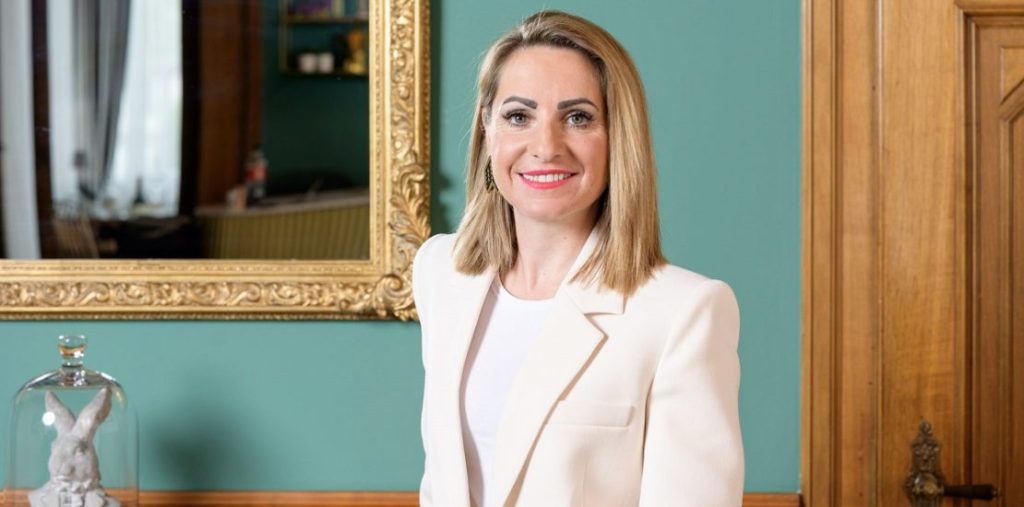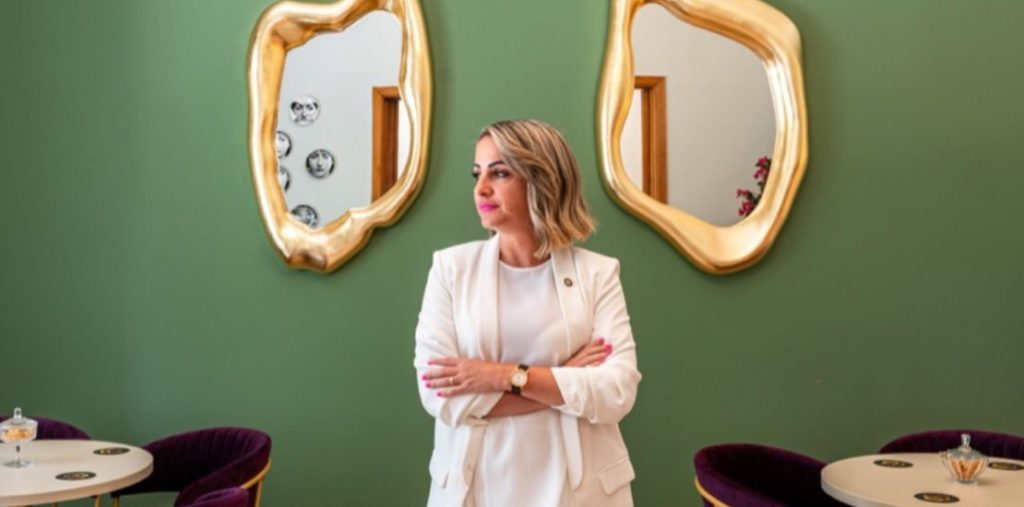Shelly Zalis is the founder and CEO of The Female Quotient, a company that works with Fortune500 companies to advance diversity and inclusion. Also known as the “Chief Troublemaker”, Shelly Zalis is an internationally renowned thought leader, movement maker, and champion of equality who not only understands the rules of business but also knows how to break them when they no longer apply.
In our conversation with Shelly Zalis as a guest on the third episode of our podcast “Unlocking the Boardroom,” we gained valuable insights on board readiness and challenging the status quo in the business world. Here are key takeaways from our discussion:
No Regrets Policy
Live in the present and make decisions without regrets. Embrace forward-thinking and act in the moment, guided by your values and instincts. “As my father, I have a “no regrets” policy – if you feel bad about a decision you made, don’t make it, ” Shelley specifically underlined.
Breaking the Mold as the “Chief Troublemaker”
“I did not follow the rules at the workplace, which were written by men for men 100 years ago when women weren’t in the workplace. The rules did not work for me as a mother of three, grandmother, a wife, a community leader; you cannot handle the five dimensions of life if you follow the rules that were written by people that did not have to multitask on steroids. Follow your heart, not your head! Make the impossible, possible. That is how I took the title ‘Chief Troublemaker’!”
Essential skills (aka Soft Skills)
“Women are described with all the “soft skills”. But why do we call them soft skills? Soft skills seem weak. Let´s call them essential skills or critical skills. Language is so important.”
Shelly challenges the notion of categorizing crucial skills as “soft skills,” instead advocating for the recognition of their true value as essential or critical skills. By infusing emotions, compassion, and empathy into boardrooms, leaders can foster cultures that thrive on connection and humanity. “We must make the invisible visible with strength, conviction and fortitude, because it’s changing the narrative. That’s how stereotypes kick in. I am a passionate leader, which means that I care. That is the connective tissue; this is what creates cultures. Bring emotions to the Boardroom!” she highlighted.
Breaking Perceptions and Paving the Way
“When you look at the rules, it is all perception. In the corporate handbook, you have to sign when you start in a big company. There is no rule that says “you cannot go watch your kids or take them to the doctor”; we just think we cannot. This sounds as a motherhood penalty because men do not do it. So, when the women go, it looks like they are weak, and they do not focus and prioritize properly their jobs. Somebody must be the first and break the pattern. And once you break the pattern, you start something new. That is how change happens.”
In other words, perceptions shape the corporate world, but rules are often a matter of perspective. There is a need for trailblazers to challenge patterns and embrace change, even in the face of uncertainty. You have to be the first, the second, and the third to change the narrative. The first is always the troublemaker or the one creating something new. But you have to be willing to fail; you have to be flexible, resilient and to believe in yourself because it is hard, being alone out there! However, when purpose meets passion, you are unstoppable. The second is the copycat. They try to copy everything you did and want to take credit for it too. And the third is the sweeper, they always win. As Shelley stated, “I will always be the first, the second, and the third because no one will beat me at my own game.” So should you.
The Future of Leadership
Hiring for passion and training for skills recognizes the importance of building a positive culture. Leaders must prioritize kindness, empathy, and genuine care for their employees, ensuring a secure and comfortable environment that fosters growth and success. Embracing conscious leadership means valuing the collective power of every individual and creating a diverse, inclusive table where everyone’s voice is heard.
“Leadership to me is about being conscious. It is about bringing empathy. It is about bringing compassion. It is about bringing your heart. Instead of doing “exit” interviews, we should do “stay” interviews; talking to our employees, our most valuable assets, and asking them what they need. And for me that is what leadership it today. It is not about commanding control; it is about understanding that everyone in your company is valuable and important, and that they all bring dimension to the table. That is the power of the collective; the power of the pack. The collective minority is greater than the current majority. Period.”
To gain more insights from Shelley Zalis’s episode, tune in to the full episode of our podcast “Unlocking the Boardroom.”






